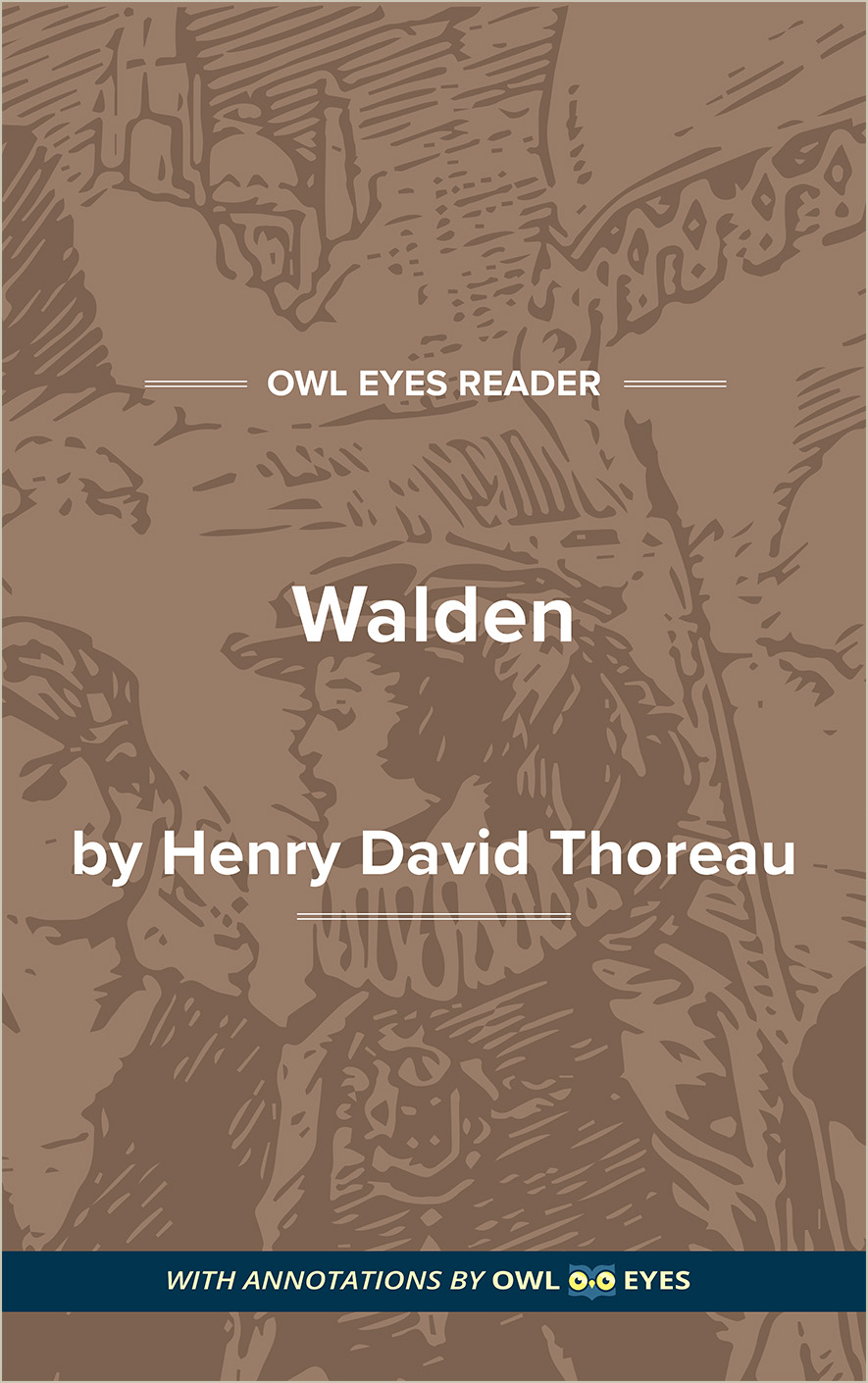Analysis Pages
Quote Analysis in Walden
Quote Analysis Examples in Walden:
Economy
🔒"When I wrote the following pages, or rather the bulk of them, I lived alone, in the woods, a mile from any neighbor, in a house which I had built myself, on the shore of Walden Pond, in Concord, Massachusetts, and earned my living by the labor of my hands only. I lived there two years and two months. At present I am a sojourner in civilized life again..." See in text (Economy)
"Our inventions are wont to be pretty toys, which distract our attention from serious things..." See in text (Economy)
"All men want, not something to do with, but something to do, or rather something to be...." See in text (Economy)
"A man who has at length found something to do will not need to get a new suit to do it in; for him the old will do, that has lain dusty in the garret for an indeterminate period..." See in text (Economy)
"My purpose in going to Walden Pond was not to live cheaply nor to live dearly there, but to transact some private business with the fewest obstacles; to be hindered from accomplishing which for want of a little common sense, a little enterprise and business talent, appeared not so sad as foolish..." See in text (Economy)
"With respect to luxuries and comforts, the wisest have ever lived a more simple and meagre life than the poor..." See in text (Economy)
"Is it impossible to combine the hardiness of these savages with the intellectualness of the civilized man?..." See in text (Economy)
"The mass of men lead lives of quiet desperation...." See in text (Economy)
"What a man thinks of himself, that it is which determines, or rather indicates, his fate...." See in text (Economy)
Where I Lived, and What I Lived For
🔒"Simplify, simplify. Instead of three meals a day, if it be necessary eat but one; instead of a hundred dishes, five; and reduce other things in proportion...." See in text (Where I Lived, and What I Lived For)
"I went to the woods because I wished to live deliberately, to front only the essential facts of life, and see if I could not learn what it had to teach, and not, when I came to die, discover that I had not lived..." See in text (Where I Lived, and What I Lived For)
"The morning wind forever blows, the poem of creation is uninterrupted; but few are the ears that hear it..." See in text (Where I Lived, and What I Lived For)
Conclusion
🔒"If a man does not keep pace with his companions, perhaps it is because he hears a different drummer...." See in text (Conclusion)
"Let us not play at kittly-benders. There is a solid bottom everywhere...." See in text (Conclusion)

